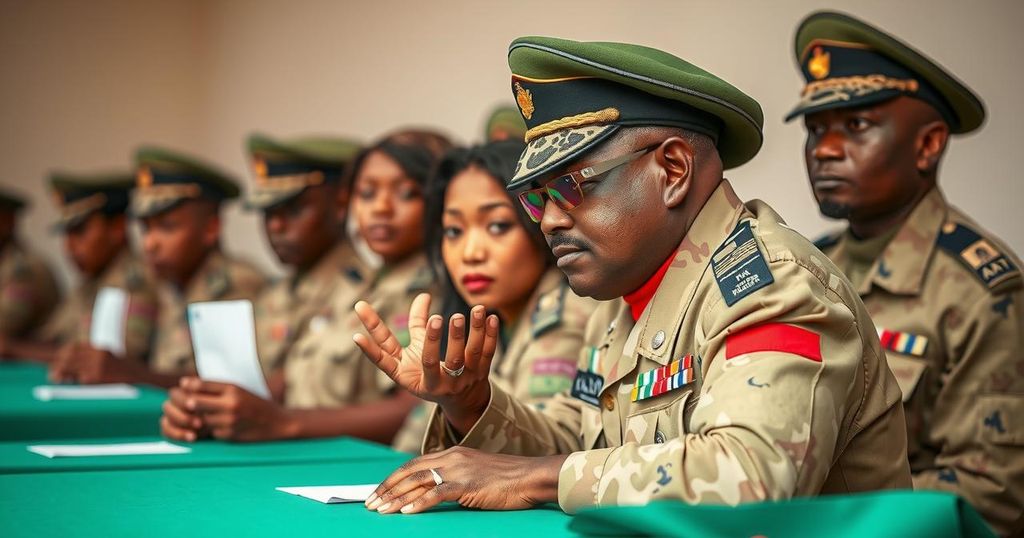Chad held a pivotal general election following three years of military governance. Low turnout figures emerged amidst an opposition boycott, questioning the election’s legitimacy. President Mahamat Idriss Deby called for public participation, while concerns about electoral integrity and political stability loom large.
Chad conducted its general election on a Sunday, marking a significant step towards the potential end of military rule that has persisted for three years. The government’s expected turnout was low due to a boycott called by opposition parties, anticipating that many voters would abstain. Early estimates indicated a turnout of around 38 percent, with election officials attributing the lack of participation to poor weather conditions rather than political discontent.
Opposition leaders asserted that the election was predetermined and discouraged voter participation. Succes Masra, leader of the Transformers party, claimed, “they have all stayed at home following our call, that is, the overwhelming majority.” This boycott enables candidates loyal to President Mahamat Idriss Deby Itno, who assumed power through military force in 2021, to dominate the election proceedings.
Despite the opposition’s call for abstention, President Deby urged citizens to vote in large numbers, promoting the election as a pivotal moment for democracy in Chad. Notably, due to logistical reasons, soldiers and police had already voted the previous day, reporting a higher turnout compared to the general public, with 72 percent from the military casting ballots.
As the elections proceeded, concerns emerged about electoral integrity, including reports of missing ballots and potential fraud. Amidst ongoing violence from Boko Haram and political instability, including deteriorating relations with France and regional conflicts, the Chadian government continues to frame these elections as a critical milestone in its transition to democratic governance.
Chad has experienced three years of military rule following the death of long-time President Idriss Deby in 2021. His son, Mahamat Idriss Deby, took control and attempted to solidify his power through a presidential election earlier deemed fraudulent by opposition parties. The recent general election is viewed as a continuation of Deby’s efforts to legitimize military governance under the guise of a democratic process. The political climate in Chad is rife with challenges, including socioeconomic issues, voter disenfranchisement, and security threats from militant groups such as Boko Haram.
The general election in Chad, held after a three-year military rule, faced significant opposition boycott leading to low voter turnout. With many questioning the election’s legitimacy, concerns over potential electoral fraud have arisen. As President Deby seeks to validate his leadership, the Chadian populace appears divided, reflecting broader issues within the country related to governance and democracy. Whether this election will truly signify a transition towards a democratic regime remains to be seen as political tensions persist.
Original Source: www.rfi.fr






